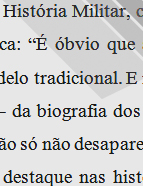

................................
One of the most influential figures in Portugal’s military historiography was Major-General Fortunato José Barreiros (1797–1885), a former commander of the Military Academy. His historical and technical-military reflections remain an uncontested authority within Military Sciences. Barreiros directed the first volume of the Revista Militar [Military Journal ] (1849) and was notably one of the first Portuguese officers to publish on tactics and strategy, drawing on Portuguese and European history. His work includes Ensaio sobre os Principios Geraes de Strategia, e de Grande Tactica, escriptos para instrucção dos alumnos da Escola do Exercito [Essay on the General Principles of Strategy and Grand Tactics, written for the instruction of the students of the Military Academy] (1837).
Another key figure in Portuguese m ilitary h istory was Simão José da Luz Soriano (1802–1891), author of the monumental Historia da Guerra Civil e do estabelecimento do governo parlamentar em Portugal, comprehendendo a historia diplomatica, militar e politica d’este reino desde 1777 até 1834 [History of the Civil War and the Establishment of Parliamentary Government in Portugal, encompassing the diplomatic, military, and political history of this kingdom from 1777 to 1834] (1866–1890), an essential historiographical work. Additionally, Major João Manuel Cordeiro (1811–1901), an engineer and mathematician, contributed significantly to m ilitary h istory, as evidenced by his numerous publications in the Revista Militar and works such as Apontamentos para a Historia do Arsenal do Exercito [Notes for the History of the Army Arsenal] (1892) and Apontamentos para a Historia da Artilharia Portugueza [Notes for the History of Portuguese Artillery] (1895). These are foundational works for the history of artillery.
Among the lesser-remembered military historians —of which there are many—is Major-General António Melo Breyner (1813–1866), director of the Revista Militar (from 1862) and the newspaper Pátria (February–December 1885). Breyner authored Considerações historicas sobre a utilidade das praças de guerra e sua applicação à defesa de Lisboa [Historical Considerations on the U tility of Fortresses and t heir Application to the Defence of Lisbon] (1854; 1862), in which he sought to demonstrate why many besieged cities were not conquered throughout history. Consequently, he argued that Lisbon should be properly fortified, an argument that materialised in the creation of the Entrenched Camp of Lisbon ( Campo Entrincheirado de Lisboa ) in 1899.
This work is financed by national funds through FCT - Foundation for Science and Technology, I.P, in the scope of the projects UIDB/04311/2020 and UIDP/04311/2020.
